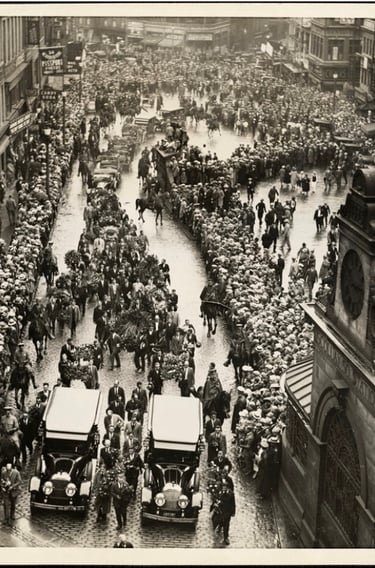Research
Law's Frail Equality
This comparative analysis of 20th century reform movements asks why those objecting to the structuring power of legal systems nevertheless stuck with law's normativity and proceduralism. By investigating legal academics,' lawyers,' and politicians' attempts to counter law's entrenchment of inequality, I ask what law at the outer boundary of politics looks like. I then dive into the institutional innovations growing out the reformers' attempt to square the circle of democratic responsiveness and legal stability.
Labor Courts
This chapter (forthcoming in 2026) charts the historical genesis of two distinct visions for German labor courts, one conciliatory and one agonistic, to ask how such courts were supposed to 'integrate' workers into the state and the legal system and to explain why one vision won out over the other.
Epistemic (R)Evolutions
CLR James and WEB Du Bois pioneered the study of enslaved people's political agency. Focusing on Black Jacobins and Black Reconstruction, I chart how those works theorize the paths available for those excluded from formal political and educational institutions to acquire political and strategic knowledge. With this discussion, I hope to contribute to the larger political theory effort to recover knowledge-acquisition in and through political action rather than presupposing it for such action.
Legal Realism and the Trial of Sacco and Vanzetti
In this article, I analyze Karl Llewellyn and Robert Hale's organizing and analysis around the most famous criminal trial of the 1920s - the trial of Italian anarchists Nicola Sacco and Bartolomeo Vanzetti. The article emphasizes Llewellyn and Hale's concerns about inertia promoted through law and what it takes to overcome this.
Drafts are available upon request.


Image of the funeral march for Sacco and Vanzetti in Boston (Boston Public Library)
Other Writing
Rosa Luxemburg on "The National Question"
I wrote this chapter to show why Rosa Luxemburg imagined a self-determined Poland that was nevertheless not a nation-state. You can find it here.
Review of Law statt Order
On a German-language political theory blog, I reviewed Maximilian Pichl's analysis of the increasingly executive-focused, state-power maximizing interpretation of the 'rule of law' state [Rechtsstaat].